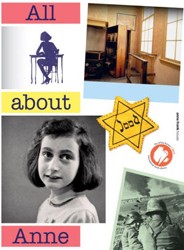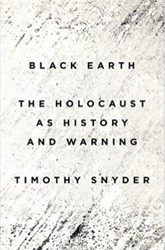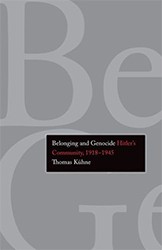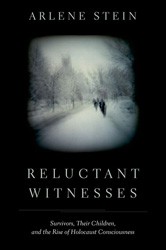Is it possible to belatedly witness the Holocaust sixty-five years after the fact? For Michael G. Levine, author of The Belated Witness, the idea is not only possible; it is more than likely. Through close readings of Maus I and II (Spiegelman), Patterns of Childhood (Wolf), The Shawl (Ozick), and the poetry of Paul Celan, Levine examines three literary genres to draw a connection between narration (telling) and survival (living). In effect, Levine insists on “co-responsibility”; the telling must be shared with the receiver for it to take and give life. To survive, he claims, is to tell; to tell is to survive.
Untold stories of the Holocaust carry with them psychological wounds, emotional anguish, and the pain that overflows into the space of the next generations. Yet, the silence thus created forms a gap, an interstice that demands explanation and one that can only be closed by mutual witnessing— albeit belated. To make his theory clear, Levine argues that there can be “no witness without a witness to the witness.” This statement, while seemingly convoluted, clearly explains Levine’s intention: to determine “what happens in the act of testimony between the witness and the witness to the witness,” between the teller and the receiver.
Levine credits Freud’s examination of “deferred action,” as well as the trauma theory espoused by Dori Laub, for informing him, but it is clear that he more significantly relies on the German poet Paul Celan to illustrate his ideas. It is Celan, after all, who defines poetry as akin to a message in a bottle— unread until the bottle is opened and shared with the receiver. Such is the case with Levine’s theory as well.





